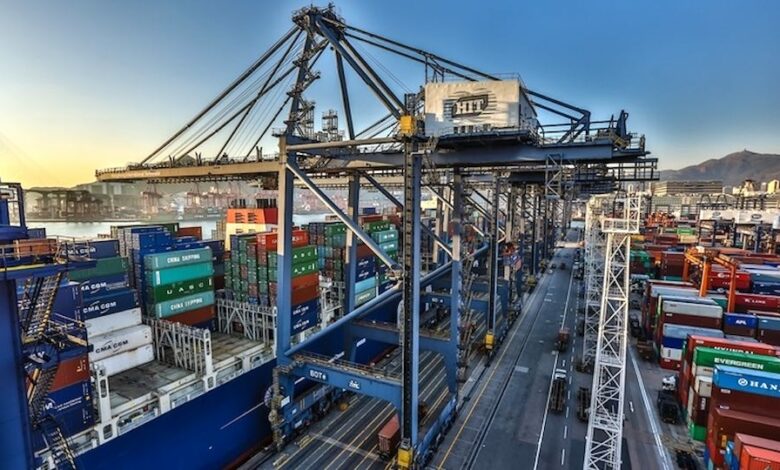Hong Kong becomes first major victim of global liner network redesigns

The world’s most rapidly declining major container port is braced for further huge throughput drops in the coming couple of years.
Hong Kong, which 20 years ago was the largest container port in the world, is increasingly being shunned by global liners.
The major alliances, Gemini Cooperation, THE Alliance and Ocean Alliance, have all unveiled their network changes for this year and next with Hong Kong deselected for many routes. For Gemini – the new alliance between Maersk and Hapag-Lloyd – the southern Chinese city does not feature as a direct port at all.
“This does not bode well for the Port of Hong Kong, but should also be seen as a sign that an element of network consolidation is afoot, especially related to transhipment hubs,” stated a new report from Danish consultancy Sea-Intelligence.
Analysis of network design and network efficiency shows that fewer, but larger, hubs are economically more efficient, according to Sea-Intelligence.
Hong Kong appears to be the first major “victim” of this, the consultancy argued in its latest weekly report, warning that more ports could risk the same fate.
Connectivity for Hong Kong has been on a consistent decline over the last decade.
Container throughput in Hong Kong fell 14% last year to 14.3m teu, the biggest percentage drop among the world’s biggest ports last year, according to data from UK consultants Drewry. The Cantonese city now lies in 10th place in the global boxport league.
Hong Kong’s decline as a major container port was discussed by some of the city’s leading shipowners at a recent event at the local Foreign Correspondents’ Club
Angad Banga, chairman of the Hong Kong Shipowners Association, told attendees that the likes of London or Switzerland showed how Hong Kong can develop as an international maritime centre, regardless of declining port numbers.
Hong Kong as a “high cost jurisdiction” ought not to compete for containers, Banga argued, a point of view echoed by another panellist, Tim Huxley, the chairman of Mandarin Shipping.
“Lifting metal boxes on and off ships is not the high value business that a global city with the highest land costs in the world should be doing,” Huxley said, reminding attendees that the city also was the headquarters for three of the world’s largest global terminal operators, with COSCO, China Merchants and Hutchison Ports all registered there.
